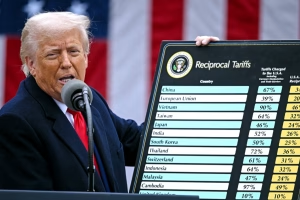Supreme Court Delivers Verdict on Anti-Terrorism Bill
On February 20, the Supreme Court conveyed its decision on the contentious Anti-Terrorism Bill to Parliament Speaker Mahinda Yapa Abeywardena. The court determined that specific clauses of the proposed legislation require approval through a special majority, while others necessitate both a special majority and a referendum, unless the recommended Supreme Court amendments are implemented.
The Supreme Court concluded a six-day hearing on February 2, addressing 31 petitions challenging the government’s new Anti-Terrorism Bill, designed to replace the controversial Prevention of Terrorism Act (PTA).
Petitioners, including figures like His Eminence Malcolm Cardinal Ranjith, General Secretary of Samagi Jana Balawegaya (SJB) Ranjith Madduma Bandara, National People’s Power (NPP) MP Vijitha Herath, Centre for Policy Alternatives (CPA), Socialist Youth Union (SYU), Duminda Nagamuwa of Frontline Socialist Party (FSP), and the Ceylon Teachers’ Union (CTU), seek a Supreme Court order mandating a parliamentary vote with a two-thirds majority and a referendum to pass the Bill, introduced to the parliament on January 10.
The Attorney General is the respondent in these petitions, with critics arguing that the Bill, if enacted as is, would grant excessive powers to the Tri-Forces, Police, and Coast Guard, enabling arbitrary arrests without reasonable suspicion. This, they assert, violates fundamental rights, including the freedom of expression guaranteed by the Constitution.








